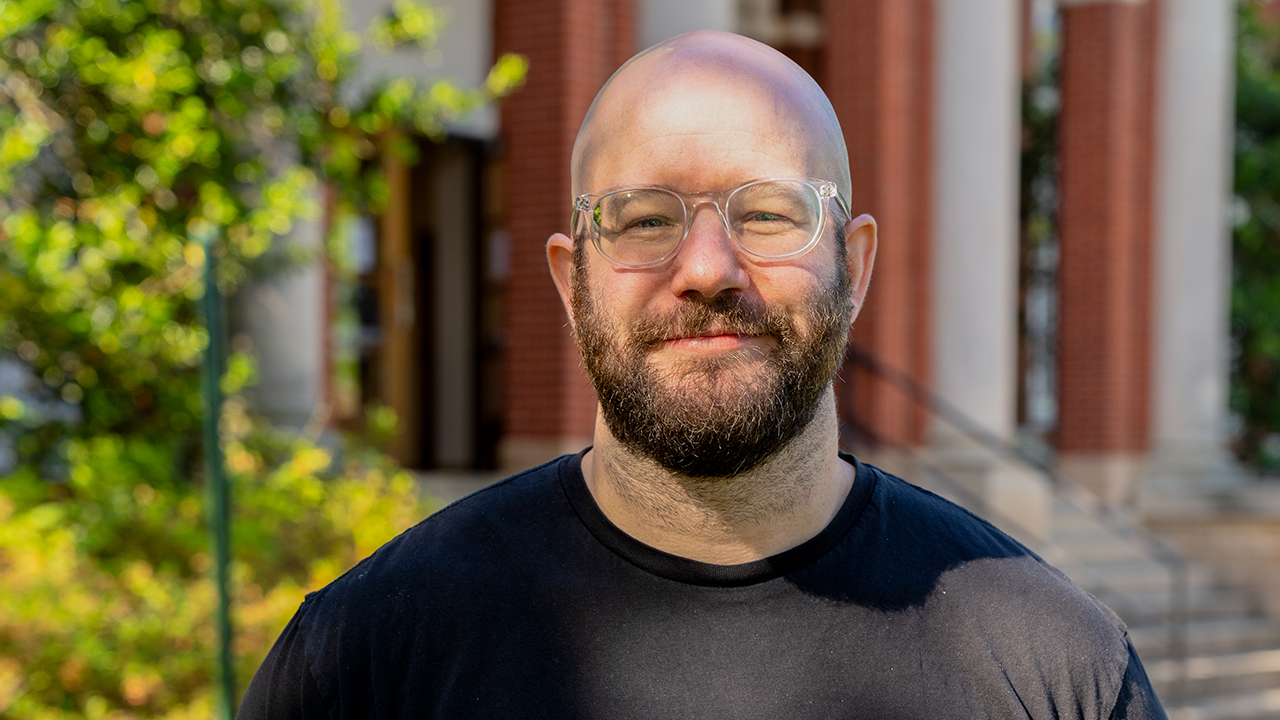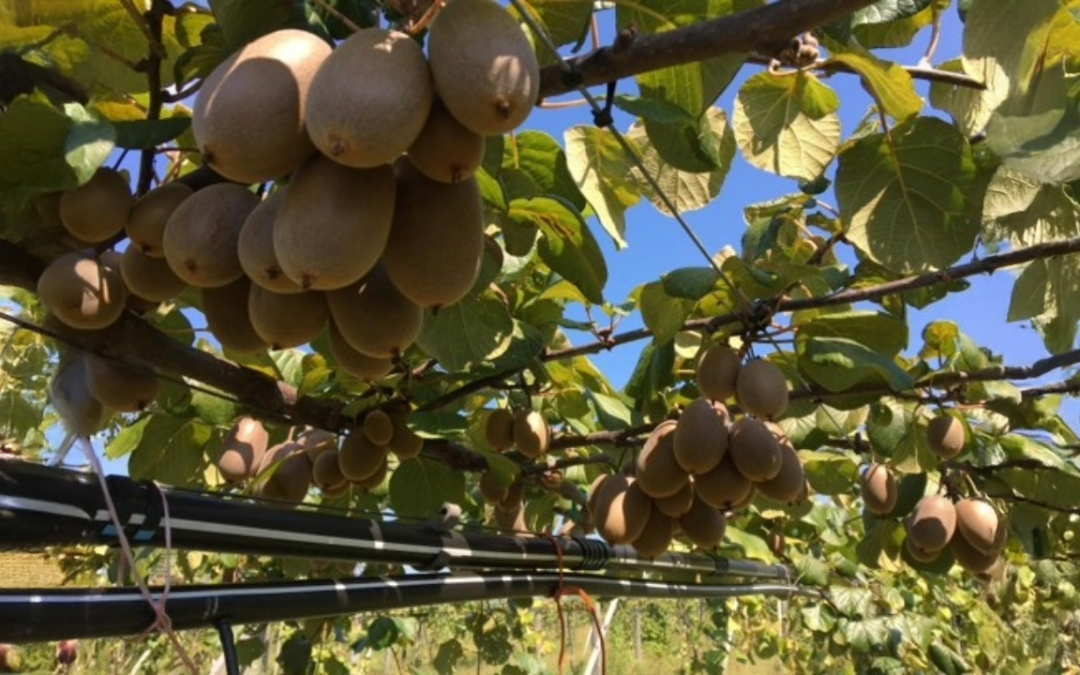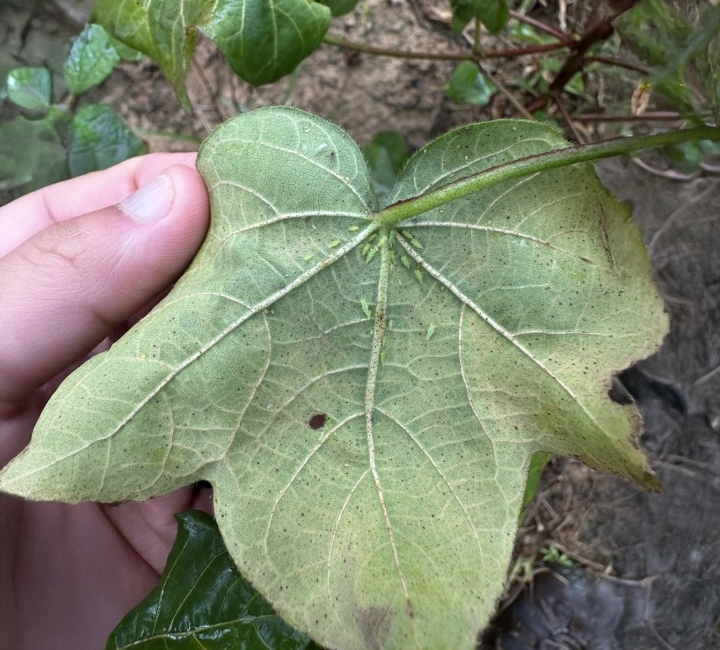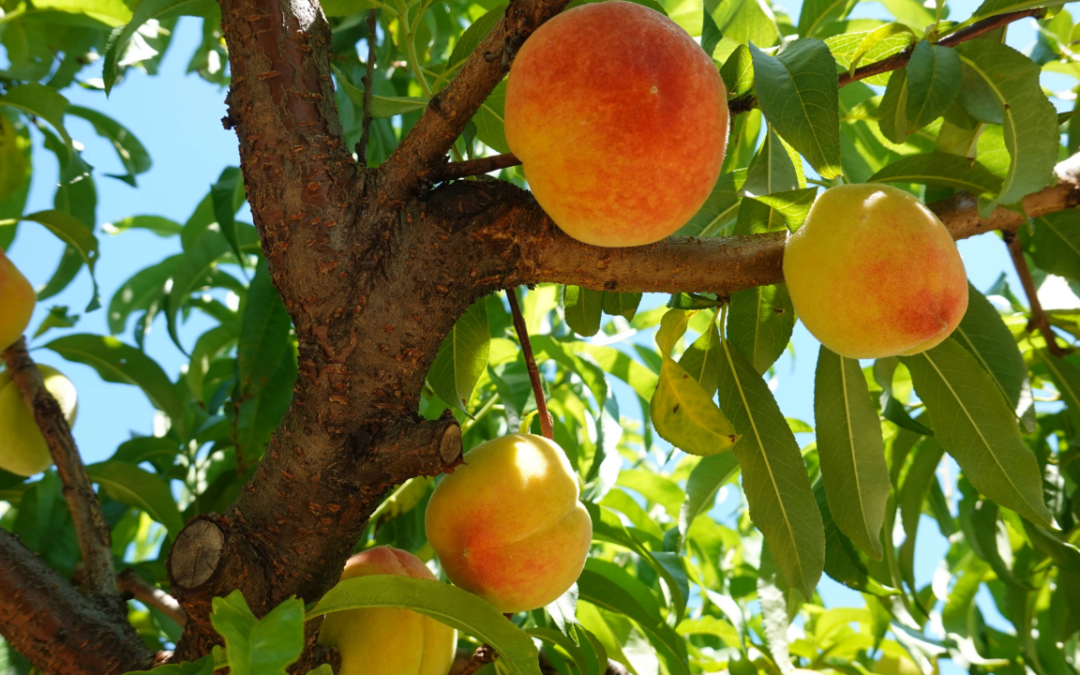One of several grants offered through the Alabama Agricultural Experiment Station (AAES) research program for the current fiscal year will allow for the continuation of groundbreaking research originally established at Auburn University that focuses on using beneficial bacteria for promoting plant growth, plant health, nutrient uptake and insect pest prevention.
“I aim to pioneer the development and exploration of novel insecticide modes of action utilizing plant growth-promoting rhizobacteria (PGPR) as an innovative and environmentally benign alternative to conventional synthetic chemical insecticides,” said John Beckmann, assistant professor in the Department of Entomology & Plant Pathology and recipient of an AAES $50,000 grant.
Beckmann’s work builds on groundbreaking research by Joseph Kloepper, College of Agriculture professor emeritus, whose work focused on using PGPR for crop seed treatments.
This initial project evolved into a technology that has become a standard input in crop production and has spawned numerous research projects across several disciplines. PGPR seed treatments are being used for all traditional row crops, including corn, soybeans and others
“Leveraging Dr. Kloepper’s extensive PGPR strain library, our investigation will identify, evolve and apply PGPR-derived biological insecticides in a bid to find sustainable and effective alternatives to chemical insecticides,” Beckmann said.
The proposed methodology, he said, involves a multi-stage process starting with screening over 6,800 strains of PGPR against fruit fly eggs and larvae, to identify strains with potential insecticidal properties.
Beckmann and his team have already screened more than 500 strains and have found very significant insecticidal properties among a few isolates. The screening step is followed by a confirmation step, repeating the initial screening on a larger scale to validate the results.
Subsequently, the identified strains will undergo a process of directed evolution to enhance their insecticidal properties, explained Beckmann. This involves individual colony screening processes to potentially improve and amplify the insecticidal effect.
The evolved strains will then be sequenced as a first step to identify variations of genes responsible for the insecticidal activity. Finally, the project tests strains’ toxicity against a wider range of insect pests, assessing their applicability to broader pest management.
Beckmann’s grant is one of 22 competitive grants awarded across three principal AAES programs: AgR-SEED, Production Agricultural Research (PAR) and equipment grants for fiscal year 2024.
PAR projects typically address a specific problem and/or challenge being experienced currently by Alabama agricultural producers. The acronym AgR-SEED stands for Agricultural Research Enhancement, Exploration and Development.
The funding addresses some of the most immediate and long-term needs of agriculture at both the state and national levels. They are administered through the AAES with USDA National Institute of Food and Agriculture Hatch funding and matching state appropriations. Many of the two-year, $50,000 grants support combined research and extension projects to address current farming problems in a timely manner through applied research.
The following projects were funded for the current cycle. The name and College of Agriculture department or other college of the principal investigator is followed by the name of the proposal and the grant amount.
AgR-SEED Grants
John Beckmann, Department of Entomology & Plant Pathology, Pioneering PGPR-Based Bio-Insecticides for Sustainable Agriculture: $50,000.
Ariel Belk, Department of Animal Sciences, The influence of pathogen presence on the meat spoilage microbiome and quality deterioration: $49,836.
Ian A.E. Butts, School of Fisheries, Aquaculture & Aquatic Sciences, Advancing reproductive health and hatchery technology to improve catfish production: $49,999.
Hao Chen, College of Forestry, Wildlife & Environment, Transcriptional regulation of stem cell self-renewal and differentiation for wood formation: $49,600.
Chen Ding, College of Forestry, Wildlife & Environment, Accelerating genomic selection on stress and pathogenic tolerance of commercial trees based on physiological responses for resilient forest landscapes: $50,000.
Wellison Diniz, Department of Animal Sciences, Effects of maternal nutrition and one-carbon metabolite supplementation in fetal muscle programming: $50,000.
Brendan Higgins, Department of Biosystems Engineering, Upcycling of nutrients from poultry slaughterhouse solid wastes into value-added products using black soldier fly larvae cultivation: $49,944.
Ben Hinnant, College of Human Sciences, Good nights’ sleep intervention: Pilot of a randomized clinical trial to improve child and family sleep: $50,000.
Ramesh Jegnathan, College of Human Sciences, nerve growth factor on muscle atrophy associated with obesity and Type 2 diabetes: $50,000.
Sung-Hwan Kang, Department of Entomology & Plant Pathology, Investigating cotton-infecting Poleroviral proteins P3 and P3-5 interactions with plant proteome: $50,000.
Jasmeet Lamba, Department of Biosystems Engineering, Quantification of phosphorus losses in runoff under climate change: $50,000.
Mark Liles, Department of Biological Sciences, Development of a symbiotic seed treatment to improve peanut drought tolerance and reduce aflatoxin contamination: $50,000.
John Linhoss, Department of Biosystems Engineering, Sophisticated chickens: Using artificial intelligence techniques to locate Alabama broiler and broiler-breeder farms and evaluate rainfall capture potential: $50,000.
Mallory Lucier-Greer, College of Human Sciences, Understanding and addressing food insecurity in the military: A translational science approach: $49,826.
Aniruddha Maity, Department of Crop, Soil & Environmental Science, Understanding the influences of biotic and abiotic factors in herbicide resistance development in Italian ryegrass: $50,000.
Neha Potnis, Department of Entomology & Plant Pathology, Evaluation of cues driving natural competence and transformation in plant pathogenic bacteria belonging to the genus Xanthomonas: $50,000.
Tanzeel Rehman, Department of Biosystems Engineering, Developing precision weed management approaches to support sustainable organic vegetable production in Southeastern U.S.: $50,000.
Di Tian, Department of Crops, Soil & Environmental Science, Estimation of evapotranspiration based on multi-source data fusion and deep learning: $50,000.
PAR Grants
Zhaofei Fan, College of Forestry, Wildlife & Environment, Developing a whole-stand growth and yield model for planted longleaf pine (Pinus palustris Mill.) stands in the east Gulf Coastal Region: $49,873.
James Spiers, Department of Horticulture, Expediting blueberry production in central Alabama: $50,000.
Equipment Grants
Ian A.E. Butts, School of Fisheries, Aquaculture & Aquatic Sciences, Eppendorf Ultra Temperature Upright Freezer for aquatic biological samples: $7,594
Yucheng Peng, College of Forestry, Wildlife & Environment, Micrometitics TriStar II Plus Automatic Physisorption analyzer to support research.





